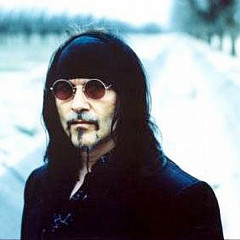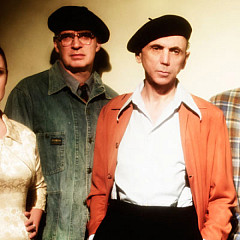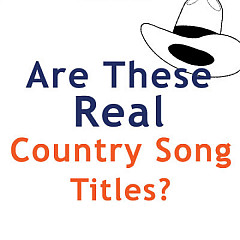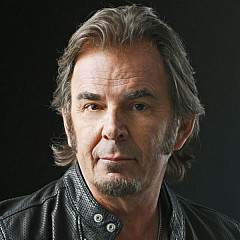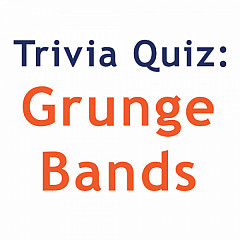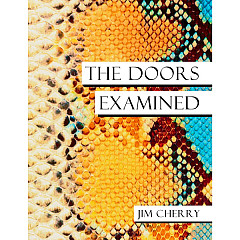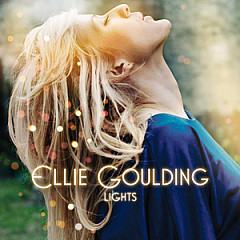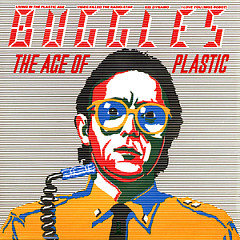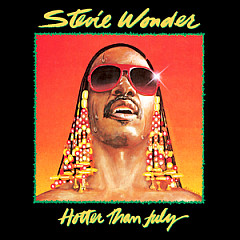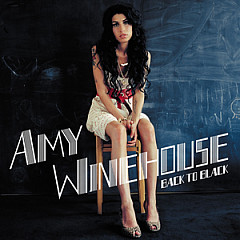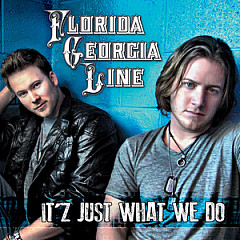 Today on the show I am speaking with Paul Peck, one of the founding fathers of Bonnaroo. Paul got his start in the music industry as a student at Tulane University. After an inspiring trip to the New Orleans Jazz Fest, he joined the Superfly team that eventually started the first Bonnaroo festival in 2002.
Today on the show I am speaking with Paul Peck, one of the founding fathers of Bonnaroo. Paul got his start in the music industry as a student at Tulane University. After an inspiring trip to the New Orleans Jazz Fest, he joined the Superfly team that eventually started the first Bonnaroo festival in 2002. In this episode, we get some behind-the-scenes stories on how that came together, and how he put together "SuperJams" where artists who ordinarily wouldn't perform together join forces on stage.
Paul also started his own festival, Okeechobee, in Florida and is now serving as the president of the fundraising platform Fandiem. We don't have our normal song samples throughout this episode, but Paul tells us the stories of creating and putting on these memorable festivals.
Bonnaroo Honors New Orleans Bluesman Dr. John
The name Bonnaroo was taken from a Dr. John record. When the festival had its big 10-year anniversary, I produced a show that took place at Bonnaroo with Dr. John recreating that record, which is called Desitively Bonnaroo, and that record was him backed by the legendary Meters of New Orleans. The Meters hadn't played together in eight years, so I was able to reunite them for the first time in a very long time. That album is just a classic album and it was produced by Allen Toussaint, and I got him to play on it too.The Birth Of Fandiem
I have a long history of producing special concerts or working closely with artists and setting out to do these things that I consider really special projects. My whole career has been about bringing together a community to share special experiences and to really create good energy. When the pandemic hit, I took my history of producing content, producing live-streamed events, and I started producing some benefit content and some benefit projects with some artists. And with a couple of partners, I was really watchful over the donations we were making versus how much activity and engagements we were seeing and how many views, et cetera. It felt like there was a really big opportunity to take this community around these live events and create more financial benefit in awareness around these areas of need. That was kind of the genesis of Fandiem, which is really the focus for myself and my business partners right now.Throughout this process, during the pandemic and amidst doing these fundraising efforts, I reconnected with an old colleague partner of mine from my Bonnaroo outside lands days, Alex Machurov, and another couple of partners. One was Jared Heiman, who is a festival producer and does a lot of marketing and sponsorship activations for a variety of independent festivals. Another two people were Ross Gassman and Julio Marin, who both were festival marketing/data-analyst-type gurus. We all got together and said that there's a much bigger opportunity around fundraising and activating the power of community.
We concocted this idea of when people make a donation to a good cause, they can win a very big prize and we can get artists to support the effort and donate a prize - sort of the evolution of the fundraising model. Typically it would have always been either this fundraising method of, "Please make a donation to something important and something great," and we've all, I'm sure, donated to those types of things. That's relying on people's generosity, but it's easy to get distracted. There might be a million things or lots of things you want to donate to, and maybe only donate to a certain percentage of those things. Or there's this auction model, which really rewards or creates opportunities for people that are wealthy. That's where one person might pay 40 grand for a great prize, that there's only one of them, and they're the only one that gets it.
Fandiem is more about, let's get 30,000 people that donate five or 10 bucks each and we make a lot more money, and now many more people are aware of this area of need and understand this artist is passionate about this area of need. And we've created a broader awareness around the program of what some of these really impressive and inspiring non-profits are doing. So, it's activating the power of community through micro-donations versus one philanthropic person making a big donation. It connects me to this idea of festivals and the power of the festivals and the strength of those festivals all from community, and the people that are there sharing this one-time-only experience and creating good energy. That's what Fandiem is all about - it's about taking the power of community and activating the individual members and creating real, positive impact in the world, and then rewarding one everyday fan with something kind of life changing.
Just like you would produce a festival, we produce these prizes that are like, so over the top for fans of Metallica, Nine Inch Nails, Imagine Dragons - we have all these artists who have generously donated stuff that's on the site right now. And we have constantly new stuff coming up on the site every day. We're working creatively with these artists to do things and create opportunities that some fan is going to get to experience - really life-changing stuff is part of the equation. We're impacting people's lives around the world, so it's a really special thing. I hope people will come and participate. I hope a lot of people win these things and have these life-changing experiences.
How He Got Involved In The Festival Scene
I was a college student in New Orleans and I was really diving deep into the New Orleans music scene. It really taught me a lot about my capacity to connect with different types of music, different types of people, different types of food, even.I also was really enamored with the New Orleans Jazz Fest, which I actually still consider to be pretty much my favorite festival in the world. I mean, you get those muddy days sometimes - you just get really good boots and you hope that the festival's not canceled on a day that an amazing artist is playing. But every single day of that event is amazing. It's also the kind of festival where there's so much attention to detail in the programming that your favorite artists might be playing on the main stage and you're having this moment of connection with something - a new type of music on a very small stage, or a new type of artist that you've never heard of, or you might be having a soft-shell crab po'boy, which is a different type of eye-opening experience.
So when I graduated from college, I started working with this company Superfly, and I had a really good reputation for producing good, creative concerts and working closely with artists, and artists liked working with me. I would try to do things that were really well-organized and logistically sound, but also had a really strong, creative inspiration and direction to them that I would work very closely with the artists on. It seemed that they needed that type of creative energy, and they had an overflow of projects. They were producing 80 or so Jazz Fest shows every year - late-night shows that happened after the Jazz Fest, when Jazz Fest ends at 7:00 p.m.
We started putting together Bonnaroo right when I started working for Superfly. In between that time and the festival, I had this whole experience of - as a very young kid - running these pretty tumultuous Jazz Fest shows in these small, New Orleans clubs. But a lot of those skills that you take into producing a show - everything from booking to pricing the tickets to marketing the show to executing the show - are some of the same challenges that would come up in those bigger shows. Like flow-of-traffic into the venue. Even if it's a hundred person venue, you want to get people in and you want to get people processed at the door and you want to make sure that everything's safe. These are on a micro-cosmic scale, some of the same issues that you work with at a festival, but at a festival, you have a much larger staff to work with you. And I've always been fortunate to be in the position of working with people that are more talented than myself in the areas that are really the critical things that make a festival run. So I can focus on what I'm good at, which is the creative aspect, which was something that since day one of Bonnaroo was really a focus of mine and something that was really kind of my wheelhouse.
I was always involved in the programming, I was always involved in the unexpected moments of surprise that would occur at the festival, which to me are these things that can really elevate the experience. If you're having a great day at a festival and you're going from point A to point B, and then all of a sudden something totally surprising and overwhelming happens - like a parade with horns and dancers sweeps you up and takes you to point W off in the middle of nowhere - there's an impromptu moment of surprise and that swept you up and took you someplace.
That was something we really took to Bonnaroo right from the gate - we would do these parades, and I would also produce this thing at Bonnaroo in the very early years called the masquerade jam, where it started in our cinema area and then it moved to our comedy area. In the very early years, you had to be in costume to get into the show. And there'd be a band playing and the band would be in costume too, and then at the end of the show, it would be revealed who the performers were. It was this cool, different experience, and these types of things that are just surprising and unexpected that celebrate this "we're all in it together" sort of spirit. A great festival captures that sense of community.
With Bonnaroo, it was a very big project and it was our first time producing a festival of that scale, and there was this spirit from the jump of we're all in this together. We don't exactly know where it's going to go, but we're all going to find out together at the same time. The idea of a temporary community that experiences this intense journey of connection, and this group of people is never going to be together again, and through all these different twists of fate have all come together at this one place at the same time, in the same physical location, on this really big planet. We're all together and we're sharing something. And at the end, everyone is going to go back in a million different directions, and if they can take some good energy back into the real world, then that's a really healthy thing. That whole concept has been something that I've always searched for as a fan and also a producer. I want to take part in those experiences and I want to help create those experiences for others - selfishly, so I can take part in them.
The Power Of Community
Fandiem really does connect to this concept because when you're having these experiences of intense connection, you feel really inspired and really motivated. In that moment, sometimes that feeling can dissipate and sometimes there's all this intention that is connected to that feeling. The idea behind Fandiem is like, let's give the individual members of the community that are really celebrating this connection an opportunity to do whatever they can, and there might be a reward for them, because one person is going to get something really exceptional. But in any event, it's the power of community - when everyone chips in a little bit, we can change people's lives, whether that's providing clean water or access to food or cancer treatment. Even access to voting.There's just so much there and it's just so connected, but this idea of the great energy that's connected in those moments and that's created in those moments and how to manifest that into real change. It's a very empowering experience too, to have those experiences of connection and then to do something positive for someone else as well. So that's what it's all about - it's about creating good energy. In our current time period, especially coming off of the pandemic, so much of our interaction with the rest of the world occurs through screens - this little barrier and this filter. To get into a physical environment and to connect with people, maybe some are the same as you or maybe some are totally different from you - that's a really healthy and I believe necessary human experience. These are the reasons that keep me excited about what I'm doing and the projects that I'm putting energy into.
Chaos At Bonnaroo
I guarantee you, there are so many moments, so many stories, that have been forgotten in the intensity and overwhelming nature of these festivals because there are so many people you're working with, and the stakes are so high and it's just so intense. It's like you've been working for over a year on this event that plays out over three days, and it's so important because people come there and they put their trust and their safety in you.I have this memory of the first year of Bonnaroo when I had just graduated from college. We had a runner that created the path that all the artists that were supposed to take at the back entrance to Bonnaroo to skip the traffic and to be able to get in safely. At some point there was a typo in the directions, and it told them to go North when they were supposed to go South or East when they were supposed to go West. We had a really good team that first year, but it was an all- hands-on-deck situation to the nth degree, to the point where me and one of the owners of Superfly were, by hand, making up the meal tickets the day before the festival because that was something that slipped through the cracks somehow. So, this was before the time that anybody had email on their phones, and some people didn't even have cell phones. I was like, how are we going to fix this? I'm just going to start calling artists and the tour managers and the managers, and I'm going to give them the correct directions. It's like an absent scramble and we hope we can get the directions to Bob Weir to get to the festival to play tonight.
Robert Plant's Sundown Performance At Okeechobee
I decided that Robert Plant should be playing at this epic moment of sundown, and Hall and Oates should play after that. He had basically started the tour around our date, and it was pretty generous of him even to play for us in our first year. We had a really good production and operations team - with all my projects, I want to hang my hat on really strong operations, logistics, good organization, and very strong creativity. So Plant is playing Led Zeppelin songs and the energy is at 11, and the whole thing is going through the roof. By the way, in the distance we see a rocket launch - SpaceX had done a space launch that day, and it was just so epic.
I was sitting there on the borderline - first one moment being on cloud nine and then the next moment having a panic attack that I screwed this whole thing up by having anyone play after Robert Plant. It was just my own personal emotional rollercoaster, but it really ended up being the way that it should have been. And Hall and Oates was just so fun and sounded so great. But Robert Plant completely brought the house down, the epic, musical superhero that he is. It was absolutely perfect. But at the time before Hall and Oates played, I was like, I don't know if this is going to work with anyone playing after him.
What Separates A Good Festival From A Bad Festival?
It's a very intense prospect, and I feel a really overwhelming amount of gratitude for these generous, selfless artists that understand that what we're creating is an art project. I think what separates a good festival from a bad festival - whether it's at a small music shack made of wood in the streets of New Orleans at two in the morning, or it's a massive 65-plus thousand-person festival - is the attention to detail. If there's something that you're doing that you're truly doing with love and vision and intention, you really want to drill into those details. That's what separates really special work from pretty mundane work. When we talk about all the details that go into a Bonnaroo - all these different nooks and crannies that you can go off and experience, and you can explore, and these moments of surprise and delight ...those are the details that really take an event and an experience in anything to the next level. It's always the details that really elevate something from really good to something absolutely exceptional. That's where the inspiration really shines through.SuperJams
That's really the way that I'm thinking about it. If I have one of the most exceptional artists in the world, or sometimes multiple of those artists, and I don't know when they're ever going to be together again, I want to create something that is purely once in a lifetime. It really relates to this idea of what you go out to a concert for. To me, I'm chasing that moment, something that's never happened before, something that's never going to happen again. That's why I throw festivals. That's why I attend festivals. I want to capture that lightning in a bottle. So I just become very ambitious and it's back to this idea of details. I want to take care and be very precious about every detail that we can put together. I think that comes down to the makeup of the band that's a special guest and the sequence of the show and who's going to sing what. What's the order of everything gonna be? Are we going to have a percussion player alongside the drummer? Who's the bass player going to be? What are our background vocalists going to be? It's these types of things. It's the details that can really take something to the next level.
And when I think about some of the artists that I've just been fortunate to work with, I had this experience many years in where I worked with Skrillex on this show, and he was - as many of the artists that I've collaborated with have been - really open to ideas, and working collaboratively to mold a direction. To me, that's where the inspiration comes in, it's when two people get together and do something that neither one of them would have done on their own. And then when you bring 10 other supremely talented individuals into that mix, it just becomes this really special lightning strike moment. It's the intensity of a festival where you're all in it together and nobody from the people on stage, or the people standing in the audience, know where it's going to lead you next. We're all going to find out together.
So you want to put together the right configuration of people, the right production staff, and every single position in this is key. I want to bring the people that are going to create the right vibe, and I want to put all these amazing artists into a comfort zone to really do something special because I recognize that it's hard enough for them to go out and do the unbelievable shows that most of these artists do every night when they control a lot of these factors, but then they're going to wipe the slate clean and they're going to do something that they never do. They don't have to do this and Lord knows they're not really getting paid much for it, so it's just this really generous way to share their creativity and their talents with the world. I just have so many stories about these epic moments that we've created. I mean, I've been very lucky.
The first SuperJam that I ever produced for the company Superfly was with Questlove, and since then I've gotten to work with him on a couple of different projects like these. The first show that I did with him was just such an exceptional show, the energy and talent. He knows everything about music. These shows are all about celebrating classic songs and hearing them in a new context. I share the passion for the craft of songwriting and how that can play a role in our collective consciousness and the idea of amazing song writings that tell something about reality that's hard to verbalize otherwise. I love the idea of taking artists that have been influenced by the original artists that did that song or taking that song and putting a new spin on it and celebrating it live.
Questlove is somebody that always brings the best ideas of what songs to play with the particular artists we have - what specific versions of the songs. His knowledge of songs and music, it just kind of blows me out of the water. You get your own cadence working with anybody, and in certain cases, I bring a lot of ideas and in certain cases I whittle down my ideas by 50% or 60% based on the people that I'm working with. And he's somebody that I just always had such great dialogue with, but I have supreme trust in his unbelievable taste. I mean, that's the thing about him - he's just got great taste in everything. When he's in the car, he's the guy behind the wheel and I'm happy to ride shotgun or in the back seat. I'm grateful for when I can kind of chime in with some ideas because his ideas are fairly hitting bull's eyes pretty much every time.
Did The Last Waltz Concert Film Inspire SuperJams?
And it's also the tradition of New Orleans where there's just so much collaboration and so much improvisation that goes on there. It's really the spirit of improvisation where you can create magic when you open yourself up to the possibility of magic. You can't say that it's going to happen, but you can stack the deck in your favor by bringing great artists in and doing great songs and having good energy behind it and keeping everything good, and bringing in the right collaborate group of people and having the right setting for the show and good vibe in the rehearsals. You can create a better probability that something truly epic is going to happen.
When I'm in those situations where I can create some of those experiences, I really become hyper-focused on everything that I can do - I become like a baseball manager that plays by the odds. I just want to put in everything that I can to stack the deck in our favor for positive results and do it with a creative touch and bring the right people in that are better at the things than I am. That might be more important, like making sure that the gear is set up, making sure that we have the horn charts written out in the correct key that the singer wants to sing them, making sure that we have the right vocal mics and the right monitor set up. Those types of things that are just so essential because if the artists can't hear one another, you go nowhere fast.
I grew up going to see the band Phish, and I just remember when I was a high school kid, I would see all these like really epic shows and sometimes things that you never would have expected would happen, would happen at these shows when different artists would come sit in. Those were the moments that I always chased as a fan. So it's really this collection of different inspirations and influences that created this idea that I want to put together these once-in-a-lifetime experiences where it's an aggregation of talent that maybe you wouldn't have thought would make sense on paper. But we all have so much common musical inspiration and influence in our cultural DNA, that a lot of times you can find common ground between people that you might not think would be able to connect in that way. And that's where the real magic happens. That's when you can also take the audience somewhere where it's a totally unexpected turn and that's when it gets exciting.
Why He Started The Okeechobee Festival
I started the festival with some partners. I'm the co-founder of the event and I was the head of programming and originally came up with a lot of the concept for what was the original iteration of the project, and I understand that it's evolved since then. But I'm no longer involved in the festival. My old partners who are tremendously talented individuals are stewarding that project and continue to evolve that brand in a really good and really inspiring way. But the initial iteration of it was myself along with another business partner of mine, Steve Sybesma, and some of the people that are still operating the event.I'm always seeing things that are missing. I'm also the kind of person that tends to have this counter-reaction when I see things done repeatedly a certain way. I start thinking, "Huh...maybe this could be done differently. Maybe this could be done opposite." There's a counter case for this, too. When you really get into this festival production and the creative side, some of these decisions that might seem easy are very hard decisions and you get smart people, you can understand both sides of it, but at the end of the day, a decision needs to be made. But here is plenty of opportunity for different types of experiences in the festival landscape that aren't really being offered, and you see new stuff come up.
The "When We Were Young Festival" is a festival that was just announced this year and absolutely struck a chord, and before that event was announced and put on sale, nobody had done that festival before. That was a new idea. I don't think every combination of notes and chords has been played. There are new songs to be written, and there are new festivals to be produced. There are new experiences to be created and had, and there are a lot of people that have a great recipe to do something very strong and very inspiring and evolve that particular project. There are endless opportunities to do things that are different. It's really just about what do you, or what do I, want to spend my time on and who do I want to be working with? Where am I going to put my focus and energy towards? It's all of that.
March 9, 2022
Learn more about Fandiem at fandiem.com
Subscribe to the Songfacts podcast, part of the Pantheon Network
More Songfacts Podcast

